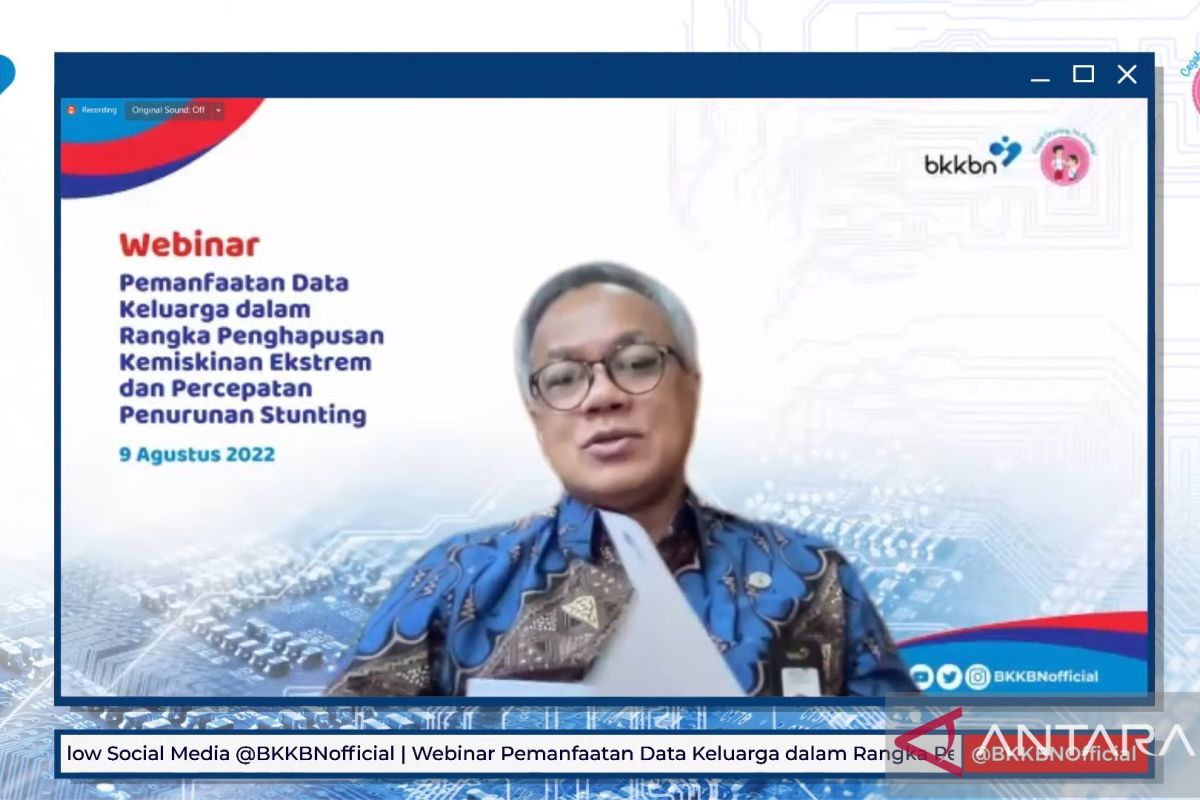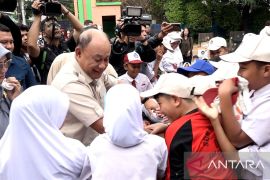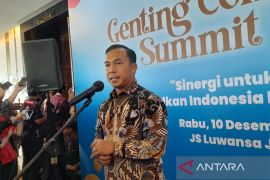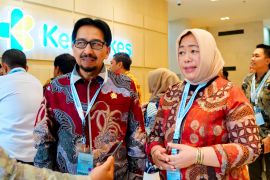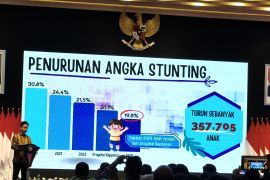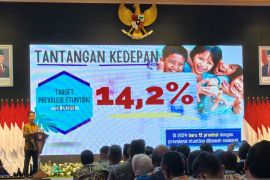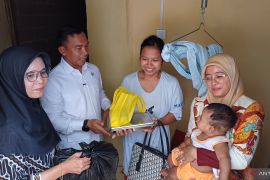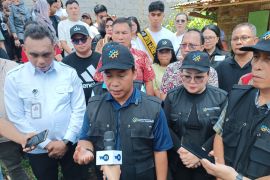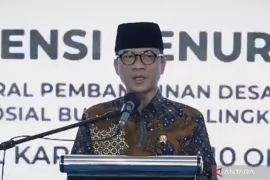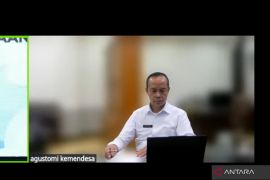Data from PK21 had three important variables to support policies made to eradicate extreme poverty, including reducing stunting ratesJakarta (ANTARA) - Data from the 2021 Family Data Collection (PK21) used in the Targeting Program for the Acceleration of the Elimination of Extreme Poverty (P3KE) had three important variables, the National Population and Family Planning Agency (BKKBN) said.
"Data from PK21 had three important variables to support policies made to eradicate extreme poverty, including reducing stunting rates," BKKBN main secretary Tavip Agus Rayanto informed during a webinar, which was accessed online from Jakarta on Tuesday.
The three important variables comprised population, group, and family development data, which were compiled in detail with the name and residential addresses of families experiencing poverty and at risk of stunting.
The family data collection included the registration of the Population Identification Number (NIK), the group data included the Family Planning (KB) program, data on the number of couples of childbearing age (PUS), and the number of children per family, Rayanto said.
Meanwhile, the family development data variable included mapping family behavior, ranging from the existence of a decent or uninhabitable home environment to the level of family education.
Although PK21 was structured per variable and based on conditions in the field, the data will be re-updated to maximize the government's efforts to bring down the prevalence of extreme poverty to zero percent and the incidence of stunting to 14 percent by 2024, he said.
Data on extreme poverty collected during the National Socioeconomic Survey (Susenas) showed that in March 2021, the number of people experiencing extreme poverty reached 27.54 million people, or 10.14 percent. By September 2021, the number fell to 26.50 million, or 9.71 percent.
Updates in the data are used as the basis for the two priority programs and to meet the needs of the latest family data and information, in accordance with the situation in the field, to help the government reach the right beneficiaries.
Rayanto emphasized that both population problems—poverty and stunting—must be resolved. Extreme poverty is one of the factors responsible for stunting in children, which is still affecting 24.4 percent or around 6 million children in Indonesia.
"We need cooperation from parties both in the central and regional governments, the business world, the community, and academia to overcome this problem," he stated.
Earlier, the government made Presidential Instruction Number 4 of 2022 the basis for efforts to eradicate extreme poverty. Meanwhile, the stunting reduction acceleration program was mandated by Presidential Regulation Number 72 of 2021.
Related news: Govt prepares to integrate data to expedite extreme poverty reduction
Related news: PK21 data should be optimally used for poverty alleviation: BKKBN
Related news: BKKBN updates PK21 data to accelerate extreme poverty eradication
Translator: Hreeloita Dharma S, Resinta S
Editor: Sri Haryati
Copyright © ANTARA 2022
